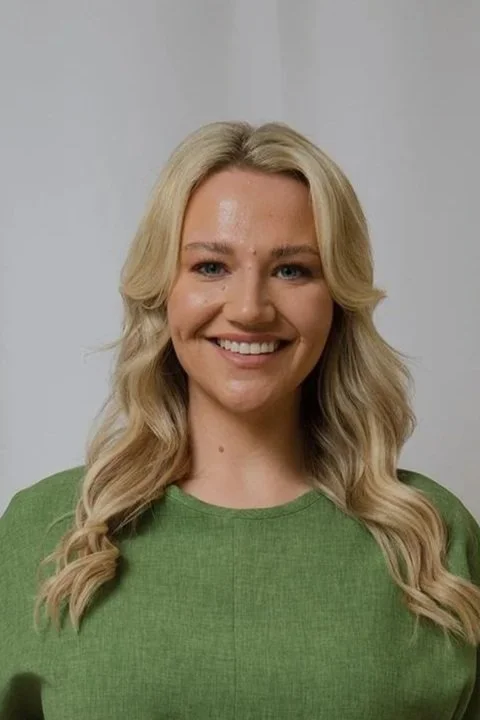
Medication service
Medication initiation and titration can now be offered to children and young people who did not have their diagnosis made by Dr Sarah Mills. Diagnoses will need to be NICE guideline Attention deficit hyperactivity disorder: diagnosis and management [NG87] compliant and reports including neurodevelopmental history with standardised measures such as Conners, SNAP-V, Vanderbuilt questionnaires and QbCheck should be provided.
Commencing ADHD medication can be a big decision, often influenced by stigma and others judgements ‘You’ll change their personality’ or ‘You’ll turn them into a zombie’. This is not the aim of medication in ADHD and if that happens, it’s the wrong option and something else should be trialled. ADHD medication should bring out the best in a young person, get rid of that fizzy and busy brain and allow their lovely personality to shine. At last they can have a conversation, enjoy their favourite activities, play with their toys….
if you are interested in discussing medication further please contact admin@drsarahmills.co.uk
Meet the Team
-

Dr Sarah Mills
PAEDIATRIC CONSULTANT Dr Sarah began working in ADHD medication and symptom management within the NHS in 2011 where she found a passion for the life changing benefits of getting things right for children and young people with ADHD. This led to the later development of this service to improve access to medication.
-

Adam Barkes
ADHD SPECIALIST NURSE
Adam is a registered Mental Health Nurse and Non-Medical Prescriber with a number of years experience in prescribing ADHD and sleep medications across the lifespan; though predominately with children and young people. -

Kayleigh Atkinson
ASSOCIATE NURSE CONSULTANT Kayleigh is highly experienced in the safe initiation and titration of ADHD medication, ensuring practice is aligned with NICE guidelines and local governance. She is confident in complex clinical decision-making and balancing pharmacological and psychosocial approaches to care
Guidance for ADHD medication initiation and titration
Starting ADHD medication and adjusting the dose to achieve the right benefits for the child is guided by NICE Guideline: ‘Attention deficit hyperactivity disorder: diagnosis and management’ [NG87].
You can’t easily predict which medication and which dose will best suit a child. As we know everyone is an individual, they respond very differently to medicines too. The NICE guidances uses evidence based recommendations to guide decision making around ADHD medications. The aim is to give the lowest dose possible for the best effects.
ADHD medications are complex drugs they have a number of possible side effects, particularly on appetite - which can affect weight gain and growth in children, mood, blood pressure and sleep. These side effects are carefully monitored and up to date height, weight and blood pressure is required at each review appointment.
Side effects do sometimes wear off or can be managed, in some cases they will influence a change of medication.
The initial medication of choice is guided by the guidelines and discussion with the child/young person, their parents or carers. We opt for the most suitable option as a starting point and plan commencing the medication and titrating (adjusting) it from there.
Initial Considerations Before Starting Medication include:
Comprehensive assessment: Confirm diagnosis and assess for comorbid conditions.
Baseline measurements:
Height and weight
Blood pressure and heart rate
Risk assessment for potential misuse or diversion of medications
Cardiac history (including family history) to assess the need for ECG or specialist referral
Goals are set which the child/young person, their parents or carers want to achieve. Medication can’t solve everything and it must be clear what the intended aim is from the outset.
Medication Process
Step 1:
Medication discussion
An appointment will be be offered with the team member who has the earliest appointment. If you have a preference for who you would like to work with please let us know. It can’t be guaranteed that this person will always be available but we strive to build and maintain those therapeutic relationships that develop.
At the Medication Discussion appointment information is gathered about the child/young person, any concerns, medical background and family history. Previous reports and ADHD diagnostic information is reviewed.
Growth measurements and Blood pressure are recorded and centiles are calculated.
Medication options are discussed alongside the NICE guidelines with the risks and benefits….
Step 2:
Medication choice
Choice of First-Line Treatment in children (6+ years) and young people:
First-line: Methylphenidate. Either a short acting or modified release (8 hour) preparation may be considered
Atomoxetine or Guanfacine are considered if stimulants are not suitable or not effective.
Once a medication plan is agreed a prescription will be issued and review appointment planned.
A letter will be issued to yourselves and the GP documenting the discussion and the treatment plan.
Step 3:
Titration Phase
The dose is adjusted gradually, usually during 3 weekly reviews, based on:
Response to medication (ADHD symptoms, functioning).
Blood pressure and heart rate are checked at every dose change.
Monitoring for adverse effects (e.g., sleep disturbance, appetite loss, mood changes).
Continued regular reviews until optimal dose is reached. The titration period may take several weeks to a few months.
The GP will be updated at each medication change.
Step 4:
Maintenance and Ongoing Review
Once the optimal dose is established reviews periods are lengthened to 3 monthly for under 10 years of age and 6 monthly for those over 10 years of age. At these reviews again the following is checked:
Response to medication (ADHD symptoms, functioning).
Blood pressure and heart rate are checked at every dose change.
Monitoring for adverse effects (e.g., sleep disturbance, appetite loss, mood changes).
Discussions had regarding GP shared care agreement or transition to the local NHS medication team for ongoing medication supply and review.
A report of progress is shared with yourselves and the GP.
What Happens At an Assessment?
The whole process is child led, your child will be encouraged to share their experiences and participate as much as they wish.
We will talk through concerns, educational progress, medical and family history. Information will be gathered on your child’s interests, activities and specific symptoms.
Any existing reports or assessments completed on your child are used to inform the process.
Most appointments will take place over video call or phone call. Your child will be encouraged to participate. It’s important we meet them at least once but it’s not a requirement they are on the screen every time. Face to face appointments can also be arranged if needed.
What Happens After an Assessment?
Following the appointment, reports will be compiled and shared with you securely via email and with the GP.
There is the opportunity to review the report to ensure you are happy with it. You are welcome to share the report with nursery, school or other professionals involved in your child’s care.
At the time of the appointment you will receive an invoice by email. This is payable by bank transfer within 28 days. If card payment is preferred this can be arranged and a card link will be sent. All major debit and credit cards are accepted. It is possible to pay by instalments leading up to or following the assessment, please ask for this to be arranged.
None payment will result in services being terminated.
Medication costs are payable to the pharmacy, obtained from either online through Dr Sarah Mills or on the high street with a paper prescription sent to you.
Initial medications cost from £11 a box, more complex drug types and liquids can cost upto £130 a month.
Medication Initiation and Titration Costs
Medication discussion: £325
This package includes:
Review of ADHD assessment documents
Discussion about child, their interests, school progress, medical background and family history
May require a physical examination
Discussion about medication, risks and benefits and the appropriate options
Initial prescription will be issued and review planned
This is usually a remote consultation over video or phone call.
Fees are the same for all team members
Medication titration: £75
Once medication is commenced a phase of three weekly reviews occurs whilst the right dose and medication is found.
Height, weight and blood pressure measurements are required at each review. Most families do these themselves at home.
Adjustments are made where needed, further prescriptions issued and review planned.
This is usually a remote consultation unless there are concerns about weight loss or other side effects.
Fees are the same for all team members
Medication review: £100-£150
Once the right dose is found reviews are prolonged to 3 or 6 monthly dependant upon the child’s age and parent or carer preferences.
At this point a request can be made to the GP to arrange a shared care agreement meaning they will provide prescriptions on the NHS whilst the child remains under review with Dr Sarah Mills.
Currently in England due to GP collective action many practices are declining these arrangements:
https://www.england.nhs.uk/long-read/gp-collective-action-patient-information/
If a GP shared care agreement is in place reviews are £100.
If the GP shared care agreement is not in place and prescriptions are provided by Dr Sarah Mills, reviews are £150.
Ongoing review and prescriptions through the NHS: Once your child has a diagnosis of ADHD is it possible to self-refer back to the local NHS team for post-diagnostic support. The waiting list for these teams is often shorter than for an assessment. They are able to initiate and titrate medication all through the NHS. It is advised that all families pursue this route to have their child’s care provided through the NHS as they are entitled to free healthcare and it may facilitate their care into adulthood.
Frequently Asked Questions
-
ADHD medication offers significant benefits for children and young people by helping to reduce the core symptoms of attention deficit hyperactivity disorder, including inattention, hyperactivity, and impulsivity. These improvements can lead to better focus and concentration, allowing children to engage more effectively in school, social interactions, and daily routines. Medication can enhance a young person’s ability to learn, follow instructions, and develop positive relationships with peers and adults. Additionally, by improving emotional regulation and reducing disruptive behaviours, ADHD medication can contribute to greater self-esteem and overall well-being. When carefully prescribed and monitored, it forms an important part of a comprehensive treatment plan that may also include behavioural support and educational interventions.
-
Stimulants are the best and most common type of medication used to treat ADHD. There are only two stimulant medications: methylphenidate (the active ingredient in Ritalin, Concerta and other formulations) and amphetamine (Amfexa and Lisdexamfetamine).
-
Behavioural strategies are the first line of management. Its important all parents and caregivers are using the same strategies.
For example:
Simple, short instructions
Praise effort and results
Good sleep routines and plenty of physical activity
Routines around self care, dressing and chores
Support social relationships through sport and structured activities
-
Yes! Medication may be the most common treatment for ADHD with 70-80% accessing medication at some point to help symptoms. But, medications are not always required. In fact the two reasons to think about medication are:
School work and academic achievement is being badly affected by ADHD symptoms
Emotional upset and meltdowns are making home life very challenging
If these things aren’t happening or aren’t that significant medication may not be the right choice.
Even with medication not everything can be solved, behavioural strategies and school support are very important.
-
Disciplining a child with ADHD requires a focus on:
Positive praise
Clear expectations
Understanding their challenges and that their behaviour may be symptoms and not a choice.
Instead of relying on punishment, emphasise rewards for good behaviour and particularly effort, be patient when explaining their mistakes to them.
-
Without treatment, a child with ADHD may fall behind in school and have further trouble with friendships. Family life may also suffer.
Untreated ADHD can increase strain between parents and children. Parents often blame themselves when they can't communicate with their child.
ADHD medication can be life changing. It brings out the best in the child and allows them to thrive. Families can go out for a meal, to the cinema, or on holiday without ADHD casting a cloud over every interaction.
-
ADHD is a neurodivergent condition. Children diagnosed with ADHD are not likely to grow out of it.
However symptoms change as young people grow, get to know themselves, leave formal education and pursue their strengths and mature into young adults.
Around 50-86% of cases diagnosed in childhood report significant symptoms and impairment in adulthood. Some adult choose to use medication others use is partially or not at all.
-
ADHD often affects sleep as a core symptom, with many individuals experiencing difficulty falling asleep, staying asleep, and waking up. Roughly two-thirds of people with ADHD struggle to get a good night's sleep. These sleep problems can exacerbate ADHD symptoms and negatively impact overall quality of life.
Medication can sometimes improve sleep, in other cases it can cause it to worsen.
Support Links:
Youngminds:ADHD
NICEGuidelines: ADHD Diagnosis and treatment NG87
NHS: ADHD and managing behaviour positively
NHS: Methylphenidate for children
Medicinesforchildren:ADHD
NHS:ADHD in Children and Young People



